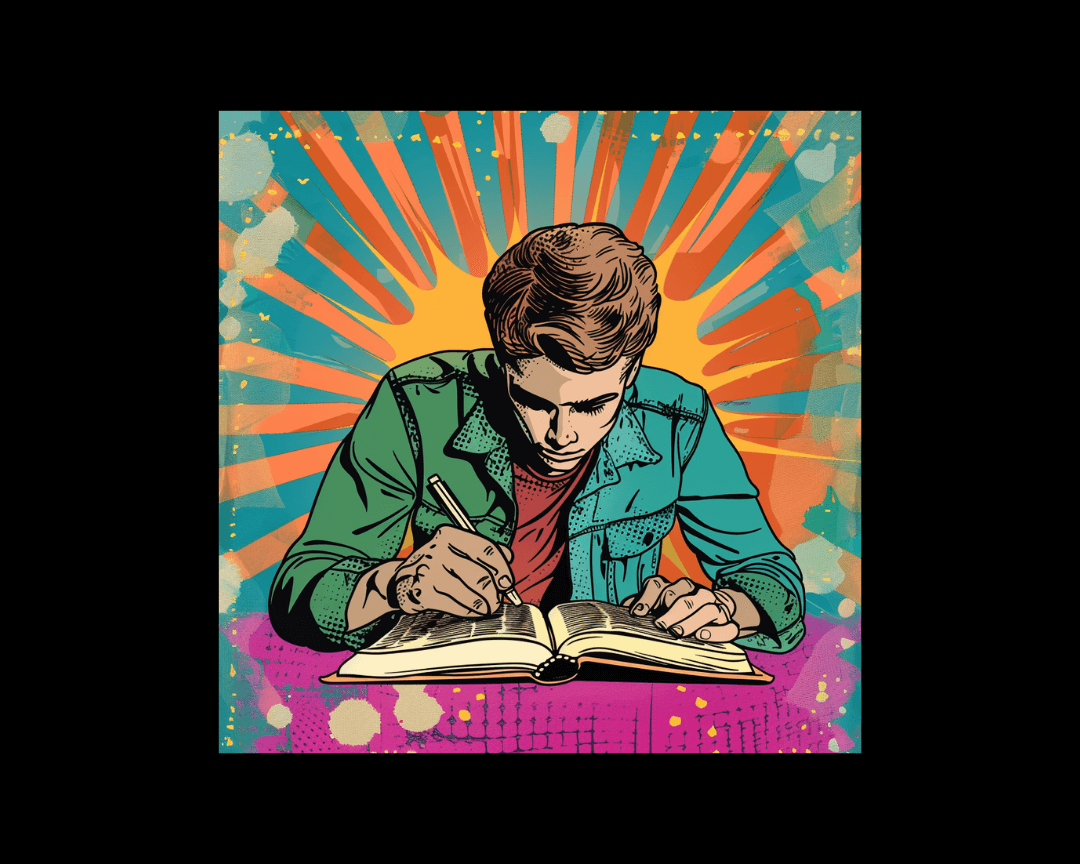To Friend or Not to Friend: Frenemies Throughout History
Hold onto your hats, folks, because we're about to dive headfirst into the dynamic world of frenemies! These enigmatic relationships, which straddle...
3 min read
 Writing Team
:
Sep 24, 2023 12:00:31 AM
Writing Team
:
Sep 24, 2023 12:00:31 AM
%20(1)-1.png)
Ah, slipstream fiction. Much like speculative fiction, it lives in that nebulous territory between literary fiction, science fiction, and fantasy. The definition depends on whom you ask and the context in which it's used. Is it a sub-genre? Does it possess its own unique identity? What is going on?
Today, we'll try to answer those questions and more. Ultimately, it is up to you, the reader, to determine where slipstream resides on the weird and speculative fiction spectrum. So read on, and let's figure this out together.
The term "slipstream" was first coined in Bruce Sterling's essay "Slipstream," published in SF Eye #5 in July 1989. The essay lamented the loss of identity and influence within science fiction during that time.
Sterling expressed his belief that contemporary science fiction had strayed from its core principles, and he likened it to the declining Soviet Union—a once grand vision that had faltered. He introduced the term "slipstream" to describe a category of books that straddled the line between mainstream and genre, albeit with a touch of parody.
He acknowledged that defining slipstream was not straightforward but suggested that it was writing that made readers feel profoundly strange.
Slipstream novels resist easy classification within science fiction, fantasy, or horror genres. Fervent readers from various backgrounds may recommend them, whether they lean towards mainstream or speculative fiction.
However, slipstream is slightly too peculiar for mainstream readers and not weird enough to satisfy the expectations of science fiction enthusiasts.
It is essential to note that Sterling's essay was written in 1989, and the landscape of weird and speculative fiction has evolved since then.
In other words, it's gotten weirder.
In 2006, James Patrick Kelly and John Kessel edited the anthology "Feeling Very Strange: The Slipstream Anthology." This collection featured contributions from renowned speculative fiction authors like Aimee Bender, Ted Chiang, Karen Joy Fowler, Jeff VanderMeer, and others. The anthology positioned slipstream as a genre poised between literature and popular culture, featuring stories of visionary strangeness that deliberately defied science fiction conventions.
Author Matt Bell, known for his speculative fiction and the upcoming novel "Appleseed," encountered slipstream through this anthology. He reflected that the term "slipstream" was a portal to the worlds he wished to explore, connecting him with kindred spirits among his favorite writers.
Isabel Yap, the author of "Never Have I Ever," encountered slipstream while submitting to and reading submissions for the now-defunct journal Interfictions Online. This journal specialized in interstitial works, and Yap perceived slipstream as weird or uncanny yet intrinsically connected to our world. The term invoked images of something delicate and permeable, drifting between our world and another, setting it apart from other forms of weird fiction.
Despite residing on the fringes of speculative and weird fiction for over three decades, slipstream occupies a unique space, straddling the realms of speculative and mainstream fiction.
Helen Oyeyemi's entire bibliography could be considered slipstream, but her most recent novel, "Peaces," encapsulates the essence of "feeling very strange." The story follows Otto and Xavier, who embark on a vacation with their pet mongoose via a seemingly endless sleeper train. The train is eerily deserted, with whispers of unseen activity. Oyeyemi crafts an atmosphere that leaves her characters and readers feeling adrift and disoriented. "Peaces" is a tale that defies easy categorization, making it an exemplary slipstream work.
Aimee Bender is renowned for her mastery of strange and unconventional storytelling. In her most recent novel, "The Butterfly Lampshade," she delves into a coming-of-age story that explores the otherworldly power of objects and memories. The narrative commences with Francie swallowing a butterfly that matches those on a nearby lampshade during her mother's psychotic episode. As Francie grows, similar inexplicable events occur, and she must confront the reality of these occurrences. Bender artfully combines strange happenings and extraordinary abilities with profound relationship dynamics. "The Butterfly Lampshade" is a quintessential example of slipstream fiction.
For readers interested in exploring slipstream books, finding recommendations can be a delightful challenge for booksellers and librarians alike. Book Riot's Tailored Book Recommendations is an excellent starting point for those in search of slipstream reading suggestions. The bibliologists at Book Riot can offer additional recommendations tailored to individual preferences, drawing from their wealth of experience in finding books that match unique tastes.
Slipstream occupies a liminal space within the literary landscape—an enigmatic genre that hovers between established categories. It's that unconventional and strange fiction that defies easy classification ("something different, something weird, but not too weird").
It might be argued that slipstream is a dated term and no longer relevant. However, it serves a functional purpose for readers who navigate this niche terrain. As Isabel Yap aptly said, "It's useful if someone finds it useful. I don't hear it referenced often, but I do personally appreciate it for its specificity."
If you're eager to embark on a slipstream journey, seek out stories that challenge easy definitions, books that exist just left of center—different, resistant to labels. These stories anchor themselves in the familiar while imparting a subtle sense of imbalance, leaving readers feeling undeniably strange.

Hold onto your hats, folks, because we're about to dive headfirst into the dynamic world of frenemies! These enigmatic relationships, which straddle...

Attention all you writers, dreamers, and goal-chasers out there! Listen up because we're about to dive into the wonderful world of vision boards and...
.png)
Bizarro Fiction, a relatively new genre often likened to the cult section in your video store, has been a niche of literary experimentation.